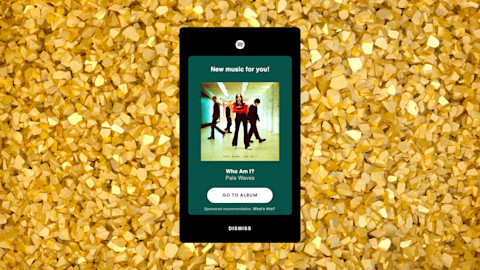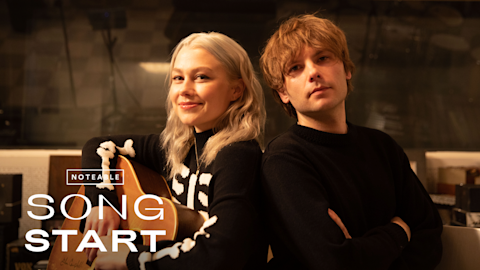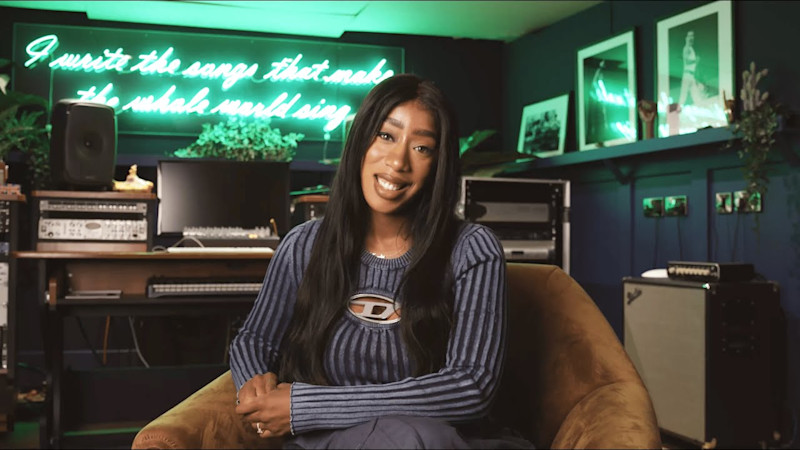Shawna Potter is in an excellent position to understand how to make show spaces safer for the artists and music fans who share them. She’s toured the world as the frontperson for feminist hardcore punks War On Women, and as an activist at home in Baltimore, she’s spent years fighting back against street harassment as a founding member of the city’s Hollaback! chapter. Now, with the publication of her new book, Making Spaces Safer, she can add “published author” to her résumé—and a formidable new tool to her arsenal.
Making Spaces Safer is a clear-cut, actionable guide that’s also part manifesto and part memoir; throughout, Potter draws on her own experiences as a female musician who has spent years navigating predominantly male spaces, in activism and in punk rock. It’s a slim book that’s absolutely stuffed with advice and resources, from grounding techniques and bystander intervention tactics to templates for venue agreements and gender neutral bathroom signs. She takes a community-centered, DIY approach to confronting harassment, breaking down concepts like accountability and restorative justice, and mounting a challenge to the power structures that enable abusers.
“After training venues and spaces of all kinds [in ways to combat harassment and create a safer environment for marginalized people] over the last five years, I realized that more people need this information than I can reach in person,” Potter explains. “Since I find myself giving the same information and answering the same questions, I figured why not just write it all down? My ultimate goal would be for a copy of this book to be read and kept on-site at every venue and space across the country.” She adds that she’d love to see the book acting as a basic set of guidelines for ensuring that anyone entering a space feels welcome and safe.
![Shawna Potter of War on Women Photo by Chris Sikich]()
Shawna Potter of War on Women Photo by Chris Sikich
A wide net
With festival season in full swing, and the #MeToo movement continuing to challenge attitudes in the music scene, Potter’s advice is intended to be helpful for all performers, not just women. At shows, she often leads the crowd in “safer spaces” trainings during their set onstage, and when War on Women joined the Warped Tour in 2017, they brought along a workshop called Safer Scenes that had expert volunteers tabling at each show and offering information and support.
“There's not just one thing artists can do—there are a ton of options, all of which can be tailored to your comfort level, your likelihood to be harassed yourself, and your privilege and your power,” Potter explains. “My advice is to talk about what's important to you: on stage, to promoters and clubs, on social media.”
Potter notes that artists have a particular amount of power and privilege that can be used to combat harassment, and a responsibility to do what they can to ensure that showgoers, especially those with marginalized identities, are able to enjoy the show free from violence or harassment.
“Someone on stage has options, and your power comes from having the mic,” Potter says. When asked for an example of what an artist can do if they spot someone in the crowd being harassed, she suggests one of three things: You can confront the person exhibiting bad behavior; you can check in with the person who looks uncomfortable and offer to help; or you can call on security directly. “There are pros and cons to each approach,” she says, “but each one shows the entire crowd, not just the immediate parties involved, that harassment and violence will not be tolerated during your show.”
As she makes clear in the book, there's no way to make a space 100% safe for everyone—but the goal of making spaces safer is ultimately an achievable one, provided that people exert a little effort. Ultimately, she is asking people—especially those onstage—to stand up for audience members, who have less power and privilege. And she is clear that it’s not wise to assume that the club itself will have an eye on harmful situations, or will be predisposed to intervene.
“Don't just hope for the best, or assume it will stop and everyone will be OK,” Potter says. “Do whatever is in your power to actively counter identity-based harassment and violence so people can just relax and have a good time at your show.”
—Kim Kelly







